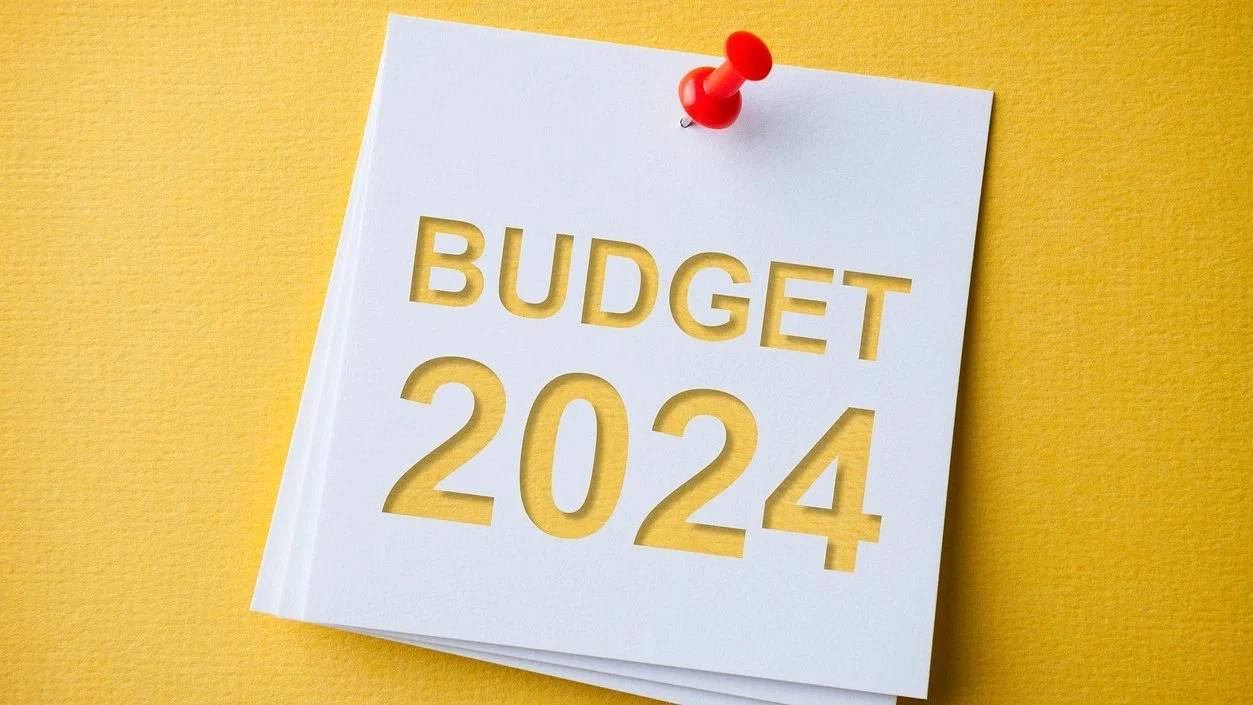The Union Budget 2024, presented by Finance Minister Nirmala Sitharaman, outlines significant fiscal policies and reforms aimed at bolstering the Indian economy. This budget is pivotal as it sets the course for India’s economic strategy amid global uncertainties and aims to position India for sustainable growth. Here are the key highlights and implications of Budget 2024.
Economic Context
The Indian economy has demonstrated resilience, with the real GDP in FY24 being 20% higher than pre-COVID levels. The Economic Survey projects a real GDP growth rate of 6.5% to 7.0% for FY25, reflecting sustained recovery and stability.
Key Highlights
Fiscal Deficit and Expenditure
- Fiscal Deficit: The fiscal deficit target for FY25 is set at 5.1% of GDP, aligning with the government’s long-term goal of reducing the fiscal deficit to 4.5% by FY26 .
- Total Expenditure: The total expenditure is projected at ₹47.66 lakh crore, with a significant portion allocated to infrastructure and social sector spending.
Tax Reforms
- Standard Deduction: The standard deduction in the new tax regime has been increased to ₹75,000 from ₹50,000. The deduction on family pension has also been raised from ₹15,000 to ₹25,000.
- Income Tax Slabs: The revised tax slabs under the new regime are 5% for income between ₹3-7 lakh, 10% for ₹7-10 lakh, and 15% for ₹10-12 lakh, providing relief to salaried employees.
- Customs Duty: Three cancer drugs are fully exempt from customs duty, and the duty on mobile phone components and chargers has been reduced to 15%.
Infrastructure Development
- Capital Expenditure: The capital expenditure outlay has been increased by 11.1% to ₹11.1 lakh crore, which is 3.4% of GDP. This investment aims to enhance economic growth and job creation.
- Railways: The budget allocates funds for converting 40,000 rail bogies to Vande Bharat coaches and expanding key rail infrastructure projects, including Metro Rail and Namo Bharat.
Social Sector Initiatives
- Housing and Rural Development: The budget provisions for the construction of 2 crore houses under PM Awas Yojana (Grameen) and the extension of Ayushman Bharat to all ASHA workers and Anganwadi workers.
- Women’s Empowerment: The ‘Lakhpati Didi’ scheme aims to empower 3 crore women in rural areas by providing financial support to self-help groups, enhancing their economic status and self-reliance.
Implications
The 2024 budget focuses on infrastructure, social welfare, and tax reforms to stimulate economic growth. By increasing capital expenditure and maintaining fiscal prudence, the government aims to attract foreign investment and improve the overall business environment. The measures for tax relief and social sector spending are designed to boost disposable incomes and support the vulnerable sections of society. Budget 2024 sets a balanced approach to foster economic growth while ensuring fiscal discipline. The strategic investments in infrastructure, social sectors, and tax reforms are poised to enhance India’s economic resilience and pave the way for sustainable development. As the nation progresses towards its goal of becoming a developed country by 2047, this budget lays down a robust foundation for the future






